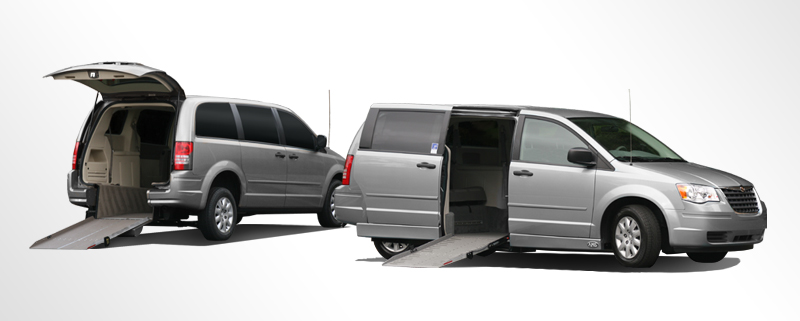
Easy Car Makeovers for Adaptive Driving
Driving after a stroke is often a major concern for survivor’s and their loved ones. It prompts many questions about ability, safety and vehicle options. Often times, the physical disadvantages that result from stroke can compromise a survivor’s ability to operate their vehicle.
Advances in the vehicle modification industry have introduced new driving controls that are giving independence back to stroke survivors that want to drive. They allow them to get back behind the wheel in their own vehicle to go where they want to go, when they want to go.
Innovative vehicle modifications such as hand controls, left-foot accelerators, lifts and mobility seating can transform your personal vehicle into a vehicle that give you more freedom.
Mobility equipment dealers strive to remain at the forefront of the vehicle modification industry by providing cutting-edge technology and a full selection of adaptable equipment for your pre-owned vehicle.
Hand Controls For Stroke Survivors with Limited Use of their Feet
Automotive Innovations is New England’s #1 hand control installation facility manufacturer of hand controls and driving aids for the disabled. Hand control systems are specifically designed to give drivers the benefit of controlling a vehicle with both hands on the wheel making for a safer, smoother driving experience.
Unlike other manual and or servo hand control installers in Massachusetts, Rhode Island, Connecticut, Vermont, New Hampshire and Maine, we have the ability to offer a custom fitment to your vehicle and you, for everything from a Fiat 500 to a Lamborghini Aventador no one else has the master craftsman, machining equipment and facility capable of performing a custom installation the way we can.
Push Rock hand controls have a handle in a vertical position; accelerating by rocking back in an arching motion using the fingers and/or the palm. There are several additional options to choose from:
- Spinner knob: Attached to the steering wheel to allow controlled steering with use of one hand.
- Single Pin: As an alternative to the spinner knob, this hand control was designed for clients that cannot open their hand fully.
- Tri Pin: Great for an independent driver. It requires minimal gripping strength and/or reduced wrist stability.
- V-Grip: This attachment is intended for drivers with moderate gripping strength.
- Steering Wheel Extension: This device is individually customizable, so you can pick a diameter and height that best suits your needs. The easily removable device is completely compatible with any OEM steering wheel.
Servo electronic mobility controls offers driving control products that are safe and provide piece of mind every time you are on the road.
- Lever: A gas/brake input with adjustable levels of force and travel from the full gas to the full brake position.
- It is designed for customers that have a wider range of motion and a larger effort level.
- One handed steering and gas brake: A input that you can steer that is available in a two-axis configuration for gas/brake and steering It has a adjustable range of motion and very low levels of force to operate.
- It is designed and custom build for each customers specific range of motion and abilities.
- Wheel: A steering input that can be adjusted to less than 2 oz of force at the proper orthotic position of 3 3/8” from center.
- It is also able to be adaptable for customers that have a wider range of motion.
Left-foot Accelerator
Automotive Innovations’ offers the best left foot gas pedals with unmatched installations. Left-foot accelerators are designed to offer a left foot gas pedal which acts exactly like your vehicle’s existing gas pedal. Our Left foot gas pedals are removable with features like a quick-release base so the entire assembly can be removed and re-installed quickly and easily.
Lifts for Stroke Survivors that use Wheelchairs or Walkers
Automotive Innovations can offer more solutions for the transportation of your mobility device than any other dealership in New England.
“Its worth the drive, I live in the western part of Massachusetts and will never trust my van with anyone other than Automotive Innovations. They have been taking care of me and my vans since 1996. When a company comes through for you time and time again whats that worth? For me it’s priceless and the drive is irrelevant.”
– Chris P Whately, MA
- Scooter & Wheelchair Lifts while not always practical they do work in all types of vehicles. These fold-down wheelchair and scooter lifts make lifting and storing your manual folding wheelchair or scooter possible.
Mobility Seating
The mobility transfer seat is an innovative system for lower vehicles which can provide easer access to an automotive seat. The seat power rotates out over the doorsill, bridging the gap for a safe transfer onto the seat. These seats are not always practical for every type of vehicle
Our goal is to match your lifestyle and your vehicle with equipment that will deliver independence.
Finding a Dealer That’s Up to Standards
Hand controls, left-foot accelerator, lifts and mobility seating offers opportunities for the stroke survivor to regain their mobility freedom in their pre-owned vehicle. You have just found the best mobility dealer in all of New England that offers a ever evolving selection of adaptable equipment.
It is important to select a reputable dealer to provide the adaptable equipment and installation for your pre-owned vehicle.
- Are they members of the National Mobility Equipment Dealers Association (NMEDA) or another organization that has vehicle conversion standards?
- Are they Quality Assurance Program (QAP) certified?
- Do they provide ongoing service and maintenance?
- Do they provide 24/7 emergency service?
- Do they provide training on the adaptable equipment?
-
Can the equipment be transferred to a new vehicle in the future?

